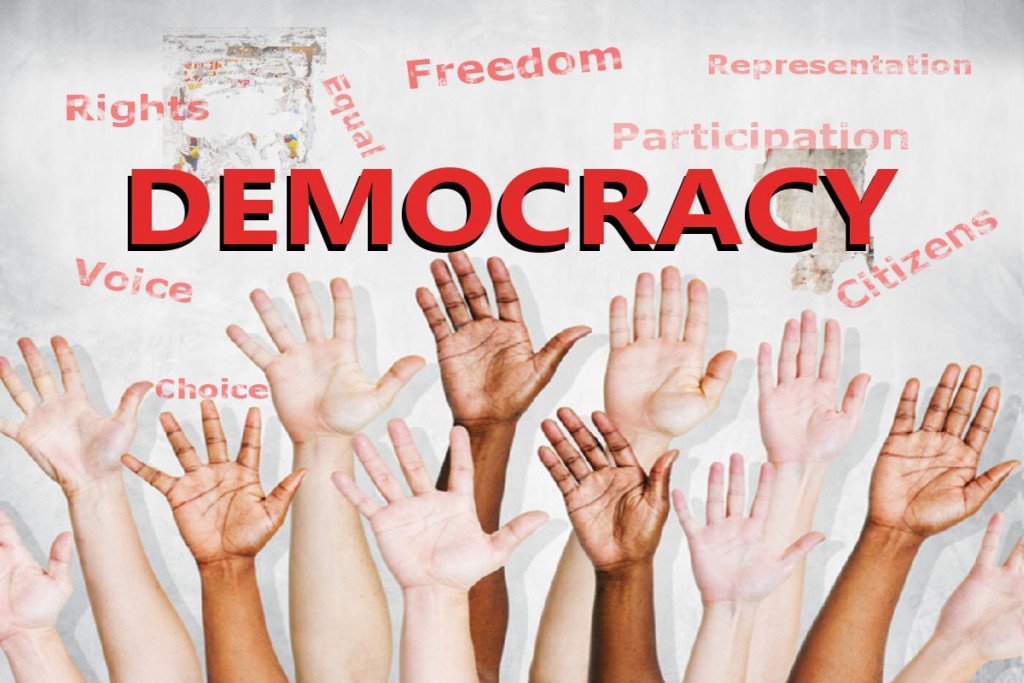While reading the first few pages of Jason Brennan’s Against Democracy recently, the idea came to me (not directly from what I was reading, mind you) that the advent of modern democracy may have been the result of a desire by the landowning class to control the means of expropriation.
My government school fueled understanding of the phenomenon of modern democracy, beginning with the founding of the American republic, the United States, was an attempt by “the People” to control their political destinies through a system of representative democracy buttressed by constitutional separation of powers and checks and balances.
In other words, government will always be with us, and a more just government is one in which political power is divested into the hands of the governed, who exercise such by electing representatives, who are required by law to follow specific rules. Contrast this type of government with a monarchy, where political power is held by a single person, and his or her favored nobles as a matter of maintaining local control in the monarch’s arbitrary interests.
Here’s another theory on understanding the phenomenon of modern democracy. Let us suppose, because it’s true, that government in practice has been primarily aimed at separating people from their money, ie. a vehicle for mass expropriation. Monarchs of old, like the strongmen before them, accomplished this through serfdom and their various taxing mechanisms. They maintained their schemes through the dissemination of mythology and, where necessary, brute force. Many monarchs probably even believed the mythology that surrounded and protected their reign, having been indoctrinated into it, as was everyone else, from birth.
Naturally, monarchies had to increase their holdings through conquest and colonization else their monarchal rivals would do so, and at some point become a threat. So they did. New lands and new people were discovered and conquered and colonized and the monarch’s paid priests and philosophers turned to justifying these actions unless anyone get the idea that what is actually going on is simply mass expropriation for the sake of obtaining and maintaining wealth and power.
The kingdom of Great Britain may have stretched itself a bit too thin, however. Their American colonies were growing and developing economically and since the monarch was so far away, they started getting ideas. These ideas clashed with the British monarch’s ideas and tap came to push came to shove came to war for independence. And then the American revolutionaries won.
Now, government is being talked about and taught about in the American colonies as good and necessary toward the security of our lives, liberties, and property (as long as you’re white, anyway). That’s the major theme in the rhetoric behind the ratification of the US Constitution. The reality, however, is that government was never about security. It was always about the expropriation of wealth from the lowest common denominator, “the People”, the masses.
Smart people, those educated in political science and philosophy, typically found among the landowning class, knew better. Government as a tool for expropriation was a threat toward those with the most to lose, unless they could control it themselves. The difficulty with doing that was in their recent severing of ties to the mythology of monarchism. There’s no way the masses would [knowingly] allow another monarch to appear out of thin air and rule the roost. (Take note, Alexander Hamilton.)
Instead, the masses need to believe that they would be in control of government, all the while it was accomplishing what governments are meant to accomplish. The rhetoric is security (the prohibition of crime), but the reality is the prohibition of liberties. Smart people don’t just allow other smart people to take their stuff. They figure out how to get into positions of power.
The monarchy was dead as far as the American colonies were concerned, so achieving nobility was out of the question. Instead, they used the pretense of representative democracy, and although such a system requires more roundaboutness to expropriation, it was as good a system as any toward that purpose. Better even, as the “the People” were and are none the wiser that more of their wealth and more of their liberties (and more of their lives!) have been sacrificed in the name of democracy than ever were under monarchy.
The result of the American quote-unquote experiment in representative democracy has been more and more societies and cultures being hoodwinked into representative democracy by smart people who’ve seen its quote-unquote success. Many have gone all the way back to another kind of monarchy: dictatorism. And the blood continues to run in the world’s streets.
So there you have it. My theory on democracy, which is not entirely original, of course. Many thinkers have had a direct or indirect influence on me over the course of my journey to voluntaryism. To the following individuals I owe a debt of gratitude: Thomas Sowell, Walter Williams, John Stossel, Milton Friedman, Sheldon Richman, Donald Boudreaux, Henry Hazlitt, Murray Rothbard, Walter Block, Hans-Hermann Hoppe, Carl Watner, Gary Chartier, Roderick Long, John Hasnas, Lysander Spooner, Tom Woods, and many, many more. (I highly recommend adding these people to your library.)




